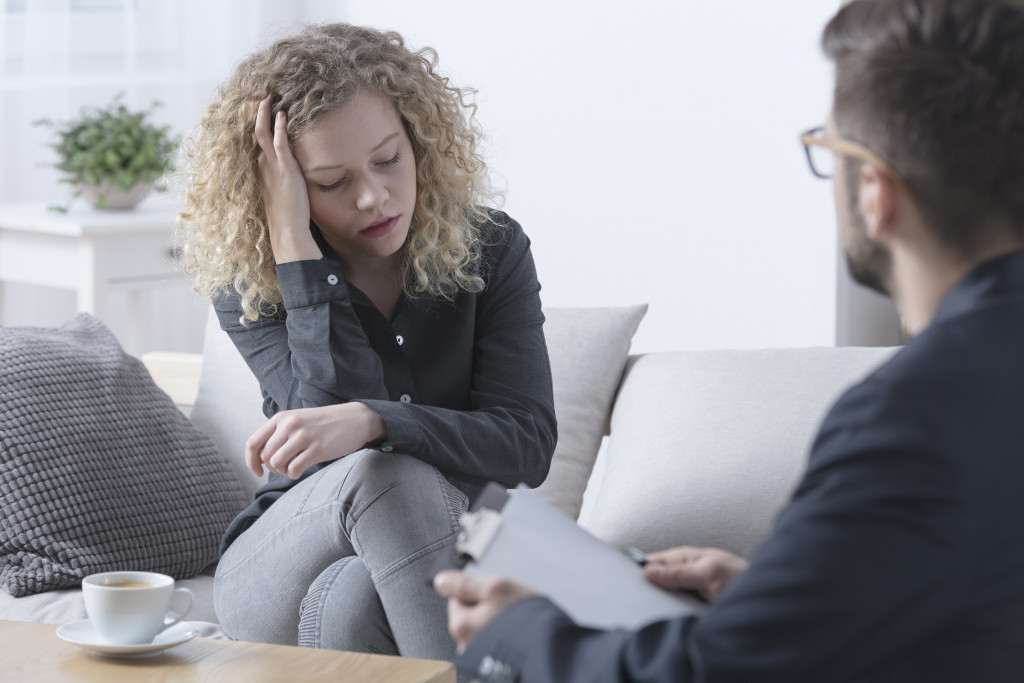
Child abuse and neglect are tragically common, affecting at least one in seven children. In 2019 alone, 1,840 American children died from these abuses, and over a thousand youths were treated for physical assault-related injuries daily. This figure is likely an underestimate due to unreported cases of bullying as well. Twenty percent of high school students reported bullying on school property alone last year.
As a couple, supporting each other in times of hardship and difficulty is crucial. If your spouse is coping with childhood trauma, there are several ways to show your support. It may not be easy, but supporting them through this challenging time can help strengthen your relationship and foster an even deeper sense of trust between the two of you.
Be Patient and Understanding
When it comes to healing from childhood trauma, every person’s journey is different. What works for one person may not work for another, and that’s okay! Give your spouse space and time to heal at their own pace.
Be patient and understanding when they need extra time or attention. Allow them to express their feelings in whatever way works best for them, whether that’s talking about their experiences or finding other outlets such as writing or art. Acknowledge their emotions without trying to fix things or make them feel guilty for how they feel.
No matter what, try to remain patient and understanding as they take the steps they need to heal and move forward. Reassure them that you’re there for them, no matter what. Remember that healing from childhood trauma is a process that can be difficult but incredibly rewarding. With your help and support, your spouse can work through their past and find peace in the present.
Consult a Professional
Spouses need to consult a professional when supporting their partner through childhood trauma. This is because childhood trauma can have long-lasting, devastating effects that can be difficult to cope with and support without the assistance of a trained expert. Professional help can provide couples with the necessary guidance and resources to ensure both partners’ mental health and well-being.
You can consult a reputable intensive outpatient therapist. The therapist can help your spouse explore their feelings and thoughts without feeling anxious. The professional can also provide support to deal with the trauma and help them cope.
Therapy can help a spouse understand how their partner’s childhood trauma manifests and how to best support them in healthy ways. A professional counselor or therapist can also provide couples with valuable insight into the nature of trauma and how to navigate it together as a team. This kind of guidance is essential for couples dealing with childhood trauma.
It is also important to remember that this process takes time and patience. Even if it feels like change is happening too slowly, you can encourage your partner to seek professional help. Supporting them through the process can make a huge difference over time. It’s also crucial for spouses to take care of their mental health, as supporting their partner with childhood trauma can be emotionally taxing.

Show Compassion and Love
It can be difficult to watch someone you love suffer from the effects of childhood trauma. But it’s important to stay positive and remind your spouse how much you care about them. Showing compassion and love will help create a safe environment where your partner feels comfortable sharing their thoughts and feelings without judgment or shame.
Let them know that no matter what they’re going through, you will be there for them throughout the entire process. Offer words of encouragement and support, and be understanding if they have difficulty expressing themselves. Reassuring your spouse that it’s okay to take their time and go at their own pace can help them feel more comfortable opening up about the trauma they faced as a child.
Practice Self-Care
Both partners must take care of themselves while dealing with trauma to stay physically and emotionally healthy during this challenging period. Make sure that both you and your partner have enough “me time” away from each other so that you don’t become overwhelmed by all the stressors associated with coping with childhood trauma together as a couple.
It may also be helpful if both partners partake in therapy sessions together or separately so that everyone involved has ample opportunity for self-care and reflection on the issue at hand. Furthermore, it can benefit both partners to maintain a healthy lifestyle and diet by engaging in physical activities, eating nutritious food, and getting plenty of sleep.
Supporting your spouse through childhood trauma can be difficult. But it is worth it in the end as it helps build resilience within both partners, strengthening your bond even further than before. With patience, understanding, compassion, love, and self-care, couples can work together through any hardships they encounter so that they ultimately come out stronger together on the other side than before.

